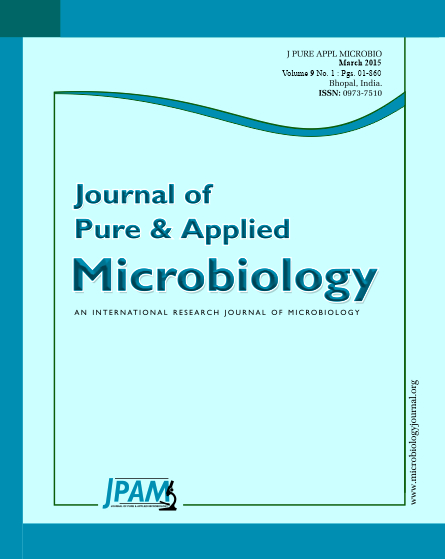Agrochemicals used for crop production adversely affect both human and environmental health. The search for bacterial antagonists is a step towards agricultural sustainability. The inhibition of Rhizoctonia bataticola, causing dry root rot of chickpea was exhibited by 59 out of 174 rhizobacterial strains. Out of which, 35 strong inhibitors (16 belonging to Pseudomonas sp. and 19 representatives of Bacillus sp.) were characterized for inhibitory traits. Production of diffusible metabolites by 16 isolates (7 of Pseudomonas sp. and 9 of Bacillus sp.) reduced the radial proliferation of pathogen suggesting the role of antibiosis in antagonism. Culture filtrate of 28 antagonists @ 50% inhibited growth of test fungus in the range of 11.1-71.25%. Fungal growth inhibition in response to thermo-stable metabolites was observed with 22 rhizobacterial isolates in the range of 11.7-36.6 %. Extracts of antimetabolites in ethyl acetate inhibited the growth of fungus in the range of 28.7-42.5%. Role of volatile antimetabolites in antagonism was evaluated and found positive with 23 antagonistic isolates while all were amylase producers. SEM revealed scanty growth with distorted cell surface morphology of test fungus in response to antagonistic effect.
Diffusible metabolites, Antibiosis, Amylase
© The Author(s) 2015. Open Access. This article is distributed under the terms of the Creative Commons Attribution 4.0 International License which permits unrestricted use, sharing, distribution, and reproduction in any medium, provided you give appropriate credit to the original author(s) and the source, provide a link to the Creative Commons license, and indicate if changes were made.


